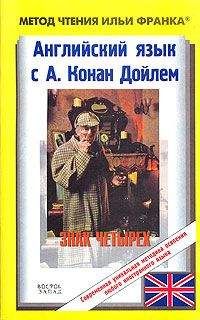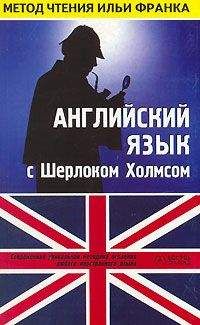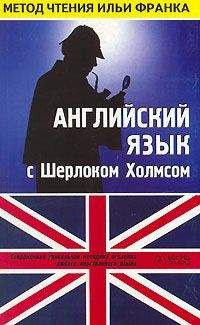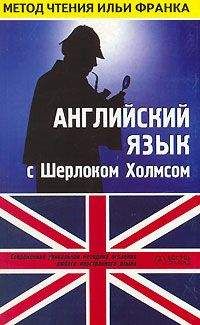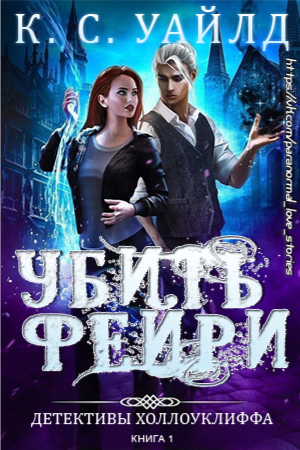Arthur Conan Doyle - Английский язык с Шерлоком Холмсом. Второй сборник рассказов
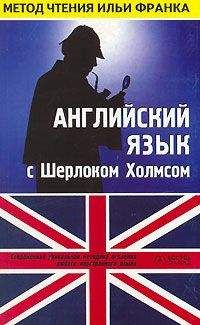
Помощь проекту
Английский язык с Шерлоком Холмсом. Второй сборник рассказов читать книгу онлайн
seizure [ˈsi:ʒǝ], exhaustive [ɪɡˈzɔ:stɪv], acquaintance [ǝˈkweɪntǝns], rigid [ˈrɪʤɪd]
“‘Not for the world,’ he cried with a gesture of horror. ‘It is more painful to me than I can express. If I were to see my father in one of these dreadful seizures I am convinced that I should never survive it. My own nervous system is an exceptionally sensitive one. With your permission, I will remain in the waiting‑room while you go into my father’s case.’
“To this, of course, I assented, and the young man withdrew. The patient and I then plunged into a discussion of his case, of which I took exhaustive notes. He was not remarkable for intelligence, and his answers were frequently obscure, which I attributed to his limited acquaintance with our language. Suddenly, however, as I sat writing, he ceased to give any answer at all to my inquiries, and on my turning towards him I was shocked to see that he was sitting bolt upright in his chair, staring at me with a perfectly blank and rigid face. He was again in the grip of his mysterious malady.
“My first feeling, as I have just said, was one of pity and horror (моим первым чувством, как я только что сказал, было чувство жалости и страха). My second, I fear, was rather one of professional satisfaction (вторым, боюсь, была профессиональная радость; satisfaction — удовлетворение; удовлетворенность). I made notes of my patient’s pulse and temperature (я записал /частоту/ пульса и температуру пациента), tested the rigidity of his muscles (проверил твердость/застылость мышц), and examined his reflexes (и рефлексы). There was nothing markedly abnormal in any of these conditions (во всех этих состояниях не было ничего заметно отклоняющегося от нормы = все эти показатели были в пределах нормы), which harmonized with my former experiences (что соответствовало моим прежним случаям: «опытам»). I had obtained good results in such cases (я добивался хороших результатов в таких ситуациях) by the inhalation of nitrite of amyl (/применением/ ингаляции нитрита амила; to inhale — вдыхать), and the present seemed an admirable opportunity of testing its virtues (и теперешний /случай/ представлялся замечательной возможностью /лишний раз/ проверить эффективность этого средства; virtue — добродетель, достоинство; сила; эффективность: there is no virtue in such drugs — эти лекарства бесполезны/неэффективны). The bottle was downstairs in my laboratory (бутылка /с лекарством/ находилась в лаборатории внизу), so leaving my patient seated in his chair (поэтому, оставив пациента сидящим на стуле), I ran down to get it (я побежал за ней). There was some little delay in finding it (произошла небольшая задержка в нахождении ее = я не сразу нашел ее) — five minutes, let us say (минут пять; let us say — скажем; примерно) — and then I returned (и затем вернулся). Imagine my amazement to find the room empty and the patient gone (представьте мое изумление, когда я обнаружил, что комната пуста, а пациент исчез).
muscles [ˈmʌs(ǝ)lz], abnormal [ǝbˈnɔ:m(ǝ)l], laboratory [lǝˈbɔrǝtrɪ]
“My first feeling, as I have just said, was one of pity and horror. My second, I fear, was rather one of professional satisfaction. I made notes of my patient’s pulse and temperature, tested the rigidity of his muscles, and examined his reflexes. There was nothing markedly abnormal in any of these conditions, which harmonized with my former experiences. I had obtained good results in such cases by the inhalation of nitrite of amyl, and the present seemed an admirable opportunity of testing its virtues. The bottle was downstairs in my laboratory, so leaving my patient seated in his chair, I ran down to get it. There was some little delay in finding it — five minutes, let us say — and then I returned. Imagine my amazement to find the room empty and the patient gone.
“Of course, my first act was to run into the waiting-room (конечно, моим первым действием было броситься в приемную = первым делом я бросился в приемную). The son had gone also (сын /пациента/ тоже пропал). The hall door had been closed, but not shut (входная дверь была закрыта, но не заперта). My page who admits patients (мой слуга, впускающий пациентов) is a new boy and by no means quick (новый мальчишка = служит недавно, и он далеко не проворен). He waits downstairs, and runs up to show patients out (он ждет внизу и поднимается наверх, чтобы проводить пациентов) when I ring the consulting-room bell (когда я звоню в колокольчик в кабинете). He had heard nothing (/на этот раз/ он ничего не слышал), and the affair remained a complete mystery (и происшествие осталось /для меня/ полной загадкой). Mr. Blessington came in from his walk shortly afterwards (мистер Блессингтон вернулся с прогулки вскоре после этого), but I did not say anything to him upon the subject (но я ничего не ему сказал об этом деле), for, to tell the truth (так как, по правде говоря), I have got in the way of late of holding as little communication with him as possible (в последнее время я старался общаться с ним как можно меньше).
“Well, I never thought that I should see anything more of the Russian and his son (я не думал, что еще увижу того русского и его сына), so you can imagine my amazement (поэтому вы можете представить мое удивление) when, at the very same hour this evening (когда сегодня вечером в тот же самый час), they both came marching into my consulting-room (они вдвоем зашли: «прошагали» ко мне в кабинет), just as they had done before (в точности, как и прежде).
admit [ǝdˈmɪt], complete [kǝmˈpli:t], marching [ˈmɑ:ʧɪŋ]
“Of course, my first act was to run into the waiting-room. The son had gone also. The hall door had been closed, but not shut. My page who admits patients is a new boy and by no means quick. He waits downstairs, and runs up to show patients out when I ring the consulting-room bell. He had heard nothing, and the affair remained a complete mystery. Mr. Blessington came in from his walk shortly afterwards, but I did not say anything to him upon the subject, for, to tell the truth, I have got in the way of late of holding as little communication with him as possible.
“Well, I never thought that I should see anything more of the Russian and his son, so you can imagine my amazement when, at the very same hour this evening, they both came marching into my consulting-room, just as they had done before.
“‘I feel that I owe you a great many apologies for my abrupt departure yesterday, doctor (думаю, что должен извиниться: «должен вам огромное множество извинений», доктор, за мой внезапный/резкий уход вчера),’ said my patient.
“‘I confess that I was very much surprised at it (признаюсь, я был очень удивлен им),’ said I.
“‘Well, the fact is (дело в том),’ he remarked (заметил он), ‘that when I recover from these attacks (что когда я прихожу в себя после этих приступов) my mind is always very clouded as to all that has gone before (мой разум всегда очень затуманен относительно всего того, что случилось раньше). I woke up in a strange room, as it seemed to me (я очнулся в незнакомой комнате, как мне показалось), and made my way out into the street in a sort of dazed way when you were absent (и, плохо осознавая свои действия, вышел на улицу, когда вас не было; to make one's way — пробираться, продвигаться; dazed — изумленный, потрясенный, ошеломленный; полубессознательный; absent — отсутствующий).’
“‘And I (а я),’ said the son, ‘seeing my father pass the door of the waiting-room (видя, как отец проходит мимо двери приемной), naturally thought that the consultation had come to an end (естественно, подумал, что консультация закончилась). It was not until we had reached home (и лишь когда мы пришли домой) that I began to realize the true state of affairs (я начал понимать истинное положение вещей).’
“‘Well,’ said I, laughing, ‘there is no harm done except that you puzzled me terribly (ничего плохого не случилось, разве только вы ужасно меня озадачили); so if you, sir, would kindly step into the waiting-room (если вы, сэр, пройдете в приемную; kindly — любезно) I shall be happy to continue our consultation (я буду рад продолжить консультацию) which was brought to so abrupt an ending (которая была так неожиданно прервана).’
departure [dɪˈpɑ:ʧǝ], clouded [ˈklaudɪd], laughing [ˈlɑ:fɪŋ]
“‘I feel that I owe you a great many apologies for my abrupt departure yesterday, doctor,’ said my patient.
“‘I confess that I was very much surprised at it,’ said I.
“‘Well, the fact is,’ he remarked, ‘that when I recover from these attacks my mind is always very clouded as to all that has gone before. I woke up in a strange room, as it seemed to me, and made my way out into the street in a sort of dazed way when you were absent.’
“‘And I,’ said the son, ‘seeing my father pass the door of the waiting‑room, naturally thought that the consultation had come to an end. It was not until we had reached home that I began to realize the true state of affairs.’
“‘Well,’ said I, laughing, ‘there is no harm done except that you puzzled me terribly; so if you, sir, would kindly step into the waiting-room I shall be happy to continue our consultation which was brought to so abrupt an ending.’
“For half an hour or so I discussed that old gentleman’s symptoms with him (полчаса или около того я обсуждал с пожилым джентльменом его симптомы), and then, having prescribed for him (а затем, прописав ему /лекарства/), I saw him go off upon the arm of his son (я видел, как он ушел, опираясь на руку сына).
“I have told you that Mr. Blessington generally chose this hour of the day for his exercise (я уже говорил вам, что мистер Блессингтон обычно выбирал этот час дня для своих прогулок; to choose). He came in shortly afterwards and passed upstairs (он вошел вскоре после /ухода пациента/ и поднялся наверх). An instant later I heard him running down (миг спустя я услышал, как он сбежал вниз), and he burst into my consulting-room like a man who is mad with panic (и ворвался в мой кабинет как человек, обезумевший от паники).
“‘Who has been in my room (кто был в моей комнате)?’ he cried.
“‘No one (никто),’ said I.
“‘It’s a lie (это ложь)! he yelled (крикнул он). ‘Come up and look (поднимитесь и посмотрите)!’
“I passed over the grossness of his language (я оставил без внимания грубость его слов; to pass over — проходить; переправляться; пролетать; пропускать, оставлять без внимания; обходить молчанием), as he seemed half out of his mind with fear (так как, казалось, он обезумел от страха: «наполовину вышел из ума от страха»). When I went upstairs with him (когда мы поднялись с ним) he pointed to several footprints upon the light carpet (он показал на несколько следов на светлом ковре).
“‘D’you mean to say those are mine (вы хотите сказать, это мои /следы/; d’you = do you)?’ he cried.
symptom [ˈsɪmptǝm], language [ˈlæŋɡwɪʤ], carpet [ˈkɑ:pɪt]
